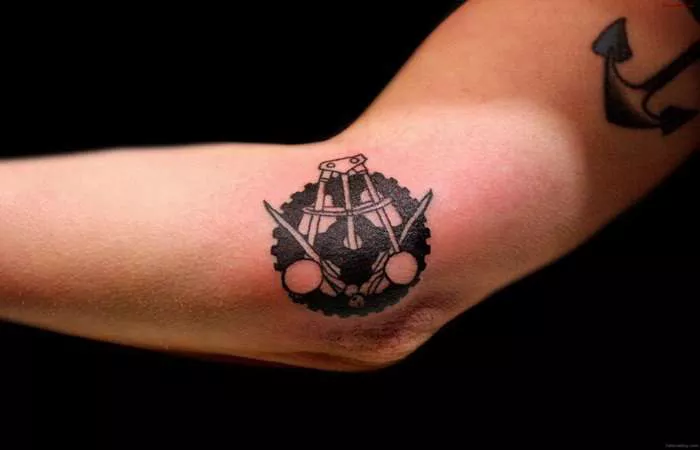Tattoos have been a part of human culture for thousands of years, and they continue to be a popular form of self-expression today. Tattoos are created by injecting ink into the skin to create a permanent design or image. They can be purely decorative, or they can have deeper personal or cultural significance. However, some people believe that tattoos are not in line with religious beliefs, and that they are forbidden by God. In this article, we will explore what different religions say about tattoos, and what God says about them.
Christianity
In Christianity, there is no specific mention of tattoos in the Bible. However, some Christians believe that the body is a temple of the Holy Spirit, and that it should be treated with respect and reverence. They believe that tattoos can be a form of self-mutilation, and that they can defile the body. Some Christians also believe that tattoos can be a form of idolatry, as they can become an obsession or a source of pride. However, other Christians believe that tattoos are a form of self-expression, and that they are not inherently sinful. Some Christians even use tattoos as a way to express their faith, such as getting tattoos of religious symbols or Bible verses.
Judaism
In Judaism, tattoos are forbidden by Jewish law. The Torah states that the body is a gift from God, and that it should not be defaced or altered in any way. Tattoos are seen as a form of self-mutilation, and they are considered to be a violation of Jewish law. Some Jews also believe that tattoos can be a form of idolatry, as they can become an obsession or a source of pride. However, some Jews believe that tattoos are not inherently sinful, and that they can be a form of self-expression. Some Jews even get tattoos of Hebrew words or symbols related to their faith. Despite this, most Orthodox rabbis discourage or forbid tattoos.
Islam
In Islam, tattoos are generally considered to be haram, or forbidden. The Quran states that the body is a gift from God, and that it should be treated with respect and reverence. Tattoos are seen as a form of self-mutilation, and they are considered to be a violation of Islamic law. Muslims are also discouraged from altering their bodies in any way that would change their natural appearance. Some Muslims also believe that tattoos can be a form of idolatry, as they can become an obsession or a source of pride. However, some Muslims believe that tattoos are not inherently sinful, and that they can be a form of self-expression. Some Muslims even get tattoos of Arabic words or symbols related to their faith.
Hinduism
In Hinduism, tattoos are not specifically forbidden by religious law. However, some Hindus believe that the body is a temple of the soul, and that it should be treated with respect and reverence. Tattoos are seen as a form of self-mutilation, and they are considered to be a violation of Hindu principles. Some Hindus also believe that tattoos can be a form of idolatry, as they can become an obsession or a source of pride. However, other Hindus believe that tattoos are a form of self-expression, and that they are not inherently sinful. Some Hindus even get tattoos of Sanskrit words or symbols related to their faith.
Conclusion
In conclusion, there is no clear consensus on what God says about tattoos. Different religions have different views on tattoos, and it is up to each individual to decide whether tattoos are in line with their religious beliefs. While some people believe that tattoos are a form of self-expression, others believe that they are a form of self-mutilation or idolatry. Ultimately, the decision to get a tattoo is a personal one, and it should be made based on one’s own beliefs and values. If you are considering getting a tattoo and are unsure about how it fits with your religious beliefs, it may be helpful to consult with a religious leader or authority in your faith for guidance.
Related topics:

